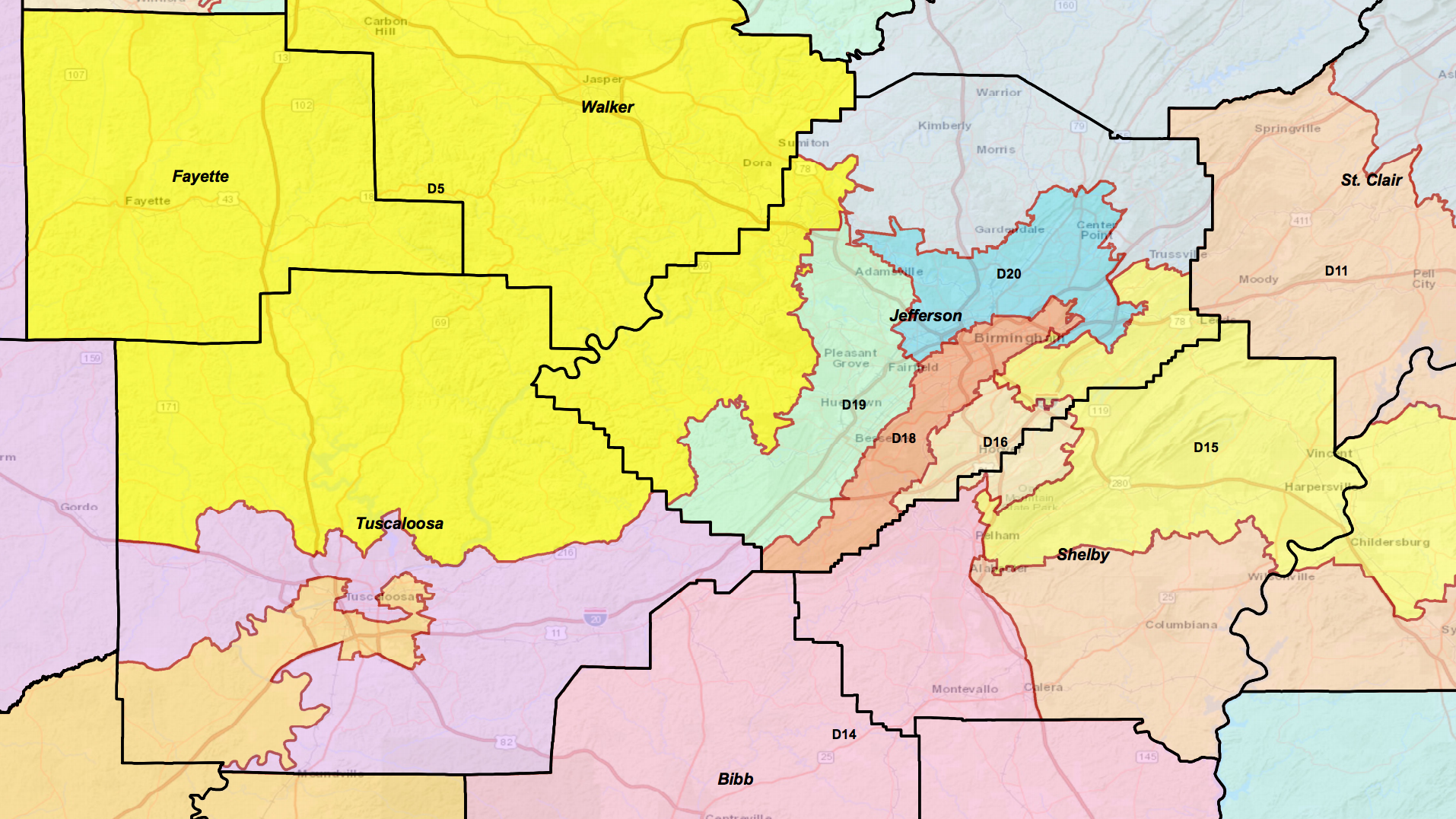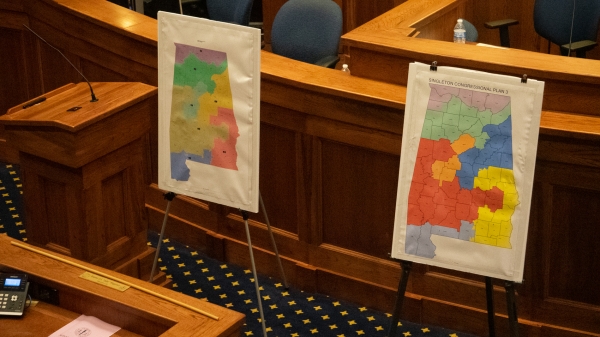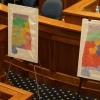After Governor Kay Ivey’s announced plans to convene a special legislative session in late October to address state redistricting, advocacy organizations and coalitions across Alabama are urging state legislators to ensure fair representation in districts for Alabamians.
“We are hopeful that when the legislature gathers for this upcoming special session, our elected officials will approve voting district maps that honor the diversity of our communities here in Alabama and the wisdom those communities have to know what is best for them,” said Evan Milligan, executive director of Alabama Forward, in a statement Thursday. “Our democracy grows stronger when voters believe that their participation matters.”
Alabama Forward, a statewide network and coalition of advocacy groups, recently held a community mapping among several other Alabama grassroots organizations to discuss redistricting.
“In addition to heavily influencing the federal and state dollars that flow back to our hospitals, schools, roads and bridges, building fair district maps is critical to earning the confidence of the public in our electoral process,” Milligan said. “Right now, while the very idea of free and fair elections is under constant assault, building fair electoral maps is more critical than ever.”
The governor has yet to formally call the special session on redistricting but expressed in a letter Thursday that she anticipates the session will convene Thursday, Oct. 28, 2021. The previous special session on prison construction and renovation ended as scheduled on Oct. 1, 2021.
Due to the landmark 2013 U.S Supreme Court case Shelby County v. Holder, this will be the first redistricting session without preclearance from federal officials as previously required under the Voting Rights Act of 1965 — a fact JaTaune Bosby, executive director of ACLU of Alabama reiterated in a statement made Thursday.
“Due to the Supreme Court’s decision in Shelby County v. Holder, originally filed here in Alabama, this will be the first redistricting cycle without federal pre-clearance that had been put in place by the Voting Rights Act of 1965,” Bosby said. “That means it will be up to the Legislature to adhere to federal law not only after the maps are drawn but throughout the entire process, but we’ll be watching to see if they do. As the Census data confirms, all of the State’s growth over the past decade is attributable to growth in communities of color, and the new maps must adequately reflect that reality without using improper practices to dilute the voting power of Black Alabamians.”
The U.S Supreme Court’s decision has led to states across the country allowing hundreds of polling locations to close, tightened voters ID laws, purged voter rolls, and barred early voting in multiple U.S states. Studies suggest election changes allowed by the Shelby County v. Holder disproportionately affect minority communities, specifically Black Americans, and lead to underrepresented districts and low turnout among minority voters.
According to the Brennan Center for Justice, more than 250 bills filed in 43 U.S states in 2021 would restrict access to voting and voting rights writ large throughout the country.
“We hope our legislators listen to the many Alabamians who have made their voices heard during the public hearings and continue to provide an avenue for active participation from the public,” said Felicia Scalzetti, Southern Coalition for Social Justice CROWD Fellow for The Ordinary People Society, in a statement Thursday. “We believe fair maps are integral to democracy and equal representation and we deserve transparency during the special session to ensure that these maps adequately represent our communities. We will be watching this process closely and hope for the good of all Alabamians that the proposed maps will be fair for all of our communities.”
A largely overlooked population whose voting access has been severely stymied in recent years is incarcerated citizens, a point which Rodreshia Russaw of Alabama Election Protection Network (AEPN) and The Ordinary People Society brought forward in statements made Thursday on the upcoming special election.
“We want elected officials to recognize fair representation that those incarcerated should be counted from their home communities and not from where they are housed. Our primary objective ahead of the special session and throughout is to get as many Alabamians as possible to connect with their legislators to advocate for fair maps,” Russaw said. “Our hopes are that Alabamians understand that access to resources within their communities and having a voice in government is connected directly to the redistricting process. AEPN launched a comprehensive education and engagement campaign in 2020, encouraging all Alabamians to be a part of the redistricting process and why it matters. We will continue to move our public education and engagement forward through the special session and beyond.”
Kathy Jones, president of the League of Women Voters Alabama said her group will review state maps drawn during the special session using the Fair Maps checklist, “to evaluate whether the proposed maps are protecting the interests of Alabama’s communities of interest, empowering voters, and improving racial equity.”
“It is vitally important for everyone to stay engaged with the redistricting special session,” Jones said, “and make your voices heard if you see your community of interest is divided.”



















































